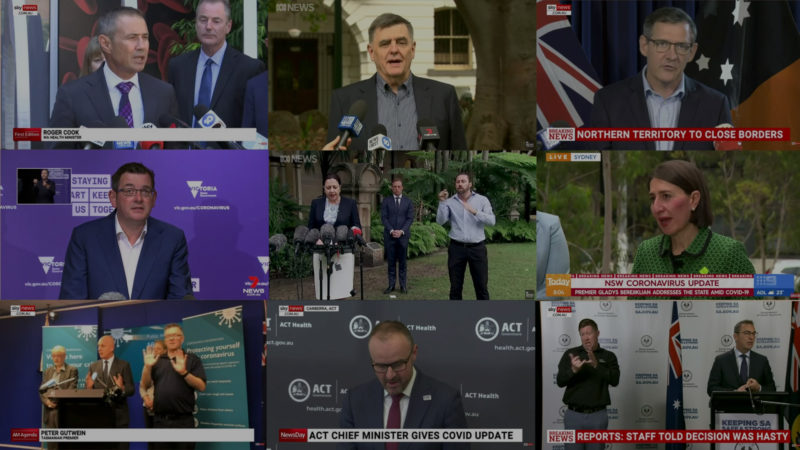INTERVENTION IN HEARING LOSS FOR AUSTRALIAN PATIENTS ACROSS CARE SETTINGS AND WITH PRE-EXISTING CONDITIONS Audiologist talks about indications for GPs, pharmacists, primary care nurses and specialists.
Lauren McNee, is an Audiologist and National Clinic Coordinator Training Manager at Audika Australia, with over 15 years of extensive experience in the industry. For the past five years, she has been dedicated to providing comprehensive training and support for the audiological team and front desk staff at Audika. Her primary focus is to ensure that clients receive the highest standard of care, aligning with industry-leading practices.
Throughout her career, Lauren has been an advocate for early and routine hearing tests, stressing the importance of integrating them into general medical check-ups, especially for individuals diagnosed with conditions such as diabetes. She firmly believes that proactive screening for hearing loss can significantly impact an individual’s overall well-being and the effectiveness of medical treatments.
In her role, Lauren emphasises the urgency of addressing sudden hearing loss, highlighting the time-sensitive nature of available treatment options. She advises healthcare professionals, including GPs, pharmacists, primary care nurses and specialists, to remain vigilant for subtle signs of hearing loss in their patients. Such signs may include difficulty following prescription guidelines, miscommunication during conversations, or non-verbal cues like a tilt of the head or asking for repetitions.
Furthermore, Lauren underscores the crucial role of professionals in various settings, such as aged care nurses and pharmacists, in identifying and addressing hearing loss issues among their clients in the community.
Beyond her clinical work, Lauren actively promotes the understanding of recreational and commercial noise-induced hearing loss. She highlights the potential long-term consequences of recreational noise exposure, such as prolonged use of earbuds and exposure to loud household and leisure activities.
In commercial settings, Lauren advocates for the proactive use of protective equipment for hearing loss in industries such as mining or construction, where individuals may be exposed to hazardous noise levels without proper protection.
You Might also like
-
Study: First time stroke survivors have substantial immediate and accelerated long term cognitive decline
New evidence from the Centre for Healthy Brain Ageing (CHeBA) indicates that older adults who experience a stroke for the first time will have substantial immediate and accelerated long term-cognitive decline.
-
HIGHLIGHTS The power of social determinants of health, panel discussion
Clinicians and consumers know only too well that life circumstances such as poor housing, income and food insecurity can have a negative impact on health outcomes. Conversely, participation in community activities, social connection and access to nature parks and leisure facilities can help maintain health and wellbeing.
More recent phenomena in public health have also focused us on the health and social care connection. Stress factors such as the sudden loss of employment and social interaction, moving to remote work or schooling, and the impacts of sudden, localised COVID-19 ‘lockdowns’ to prevent further outbreaks were triggers of increased psychological distress.
And loneliness is being described as our latest epidemic with chronic loneliness inked to a myriad of health problems and earlier death. A recent report found one in four Australians say they feel persistently lonely, and that loneliness costs $2.7 bn a year in health costs alone.
-
Continuity of Care under COVID-19
Series 3, Episode 1
Under the COVID-19 pandemic, the Australian Healthcare system has handled the public health crisis by monitoring and responding to challenges in supply chains, testing & tracing of new infections and stock piling of essential equipment.
The public has largely responded by practising social distancing, understanding how hand hygiene can spread contagion and recently installing the COVIDSafe mobile application. Public health messaging has been largely effective and literacy improve, to combat the dangers of misinformation.
To open up access to medical advice during the pandemic, in March the Australian government issued MBS item codes for telehealth consultations, for advanced practice nurses as well as GPs and other specialists.
According to AMA President Dr Tony Bartone, as of mid-May 2020, around 10 million Medicare-funded telehealth services have been provided, either over the phone or via video, a significant majority of which have been provided by GPs and other specialists since the Medicare telehealth items were introduced in March.
However in recent months, the health system has mounting concerns on:
- a reduction in general practice visits for testing, investigation or immunisation
- lower rates of elective procedures resuming since being halted
- reduction in laboratory testing
- reduction in treatments and diagnosis of chronic and acute conditions
- access to, and continuing to take medications
Those with pre-existing conditions have been urged to keep appointments and routine treatments to maintain their health.
Industry has taken action such as the newly formed Continuity of Care Collaboration (CCC). The 15 health organisations forming CCC are an Australian first national communication collaboration of Peak Bodies, Industry and Healthcare Organisations coming together to stress the importance for people to continue monitoring their health and maintaining their regular care.
This Australian Health Journal episode on the continuity of care was produced with commentary from the following health industry associations and organisations: APNA – Australian Primary Health Care Nurses Association, RACGP, Medical Technology Association of Australia (MTAA), West Cessnock Medical Practice, Consumers Health Forum of Australia, Medicines Australia
Post Views:
1,743



